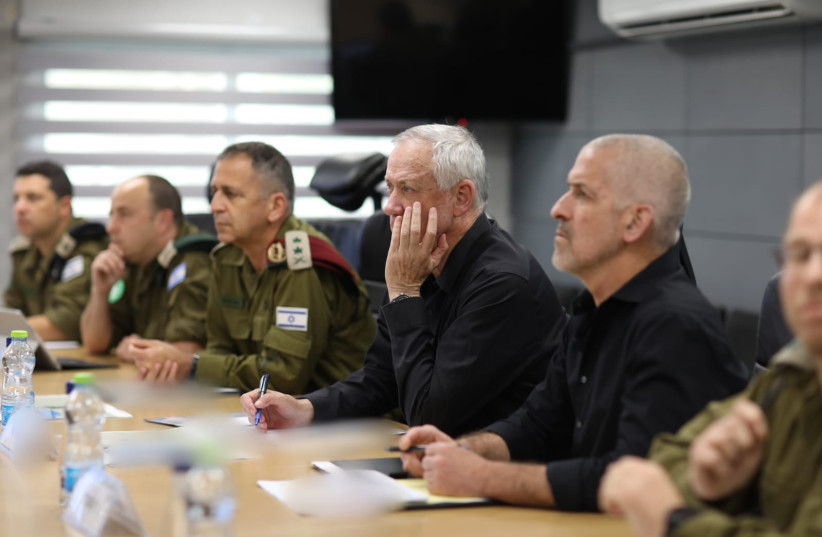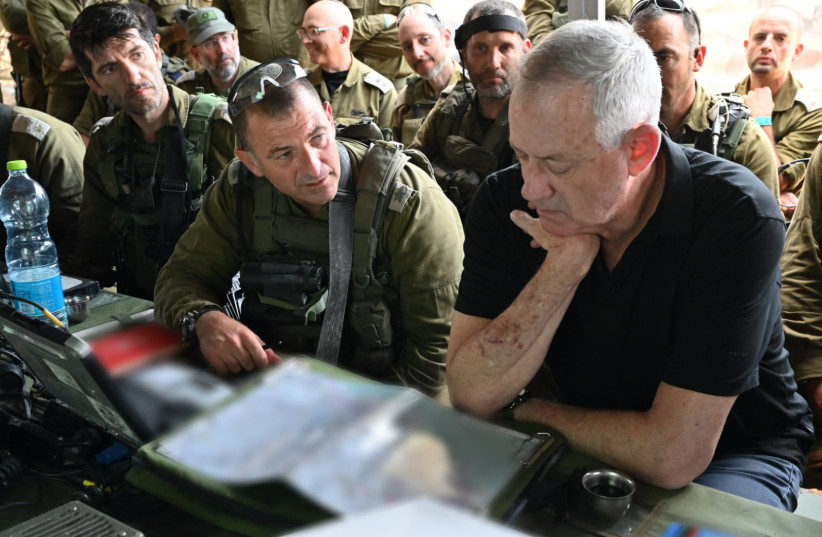IDF Chief of Staff Lt.-Gen. Aviv Kohavi is said to be opposed to a deal while Defense Minister Benny Gantz is in favor of one.

As Western powers are set to return to the negotiating table with Iran over its nuclear program, Israel’s defense establishment is at odds over whether or not a deal would be good for the Jewish State.
According to a report in Yediot Aharonot, several Israeli generals, including the head of Military Intelligence Maj.-Gen. Aaron Haliva, are supporting a return to a deal with Tehran and going against the Chief of Staff Lt.-Gen. Aviv Kohavi and Israel’s official policy.
The report said that a bad agreement is better than no agreement at all as it allows for Israel to prepare for extensive military responses against Iran rather than no agreement at all.
The other officials named by the newspaper as being in support of a deal are Brig.-Gen. Amit Sa’ar, the head of Military Intelligence’s Research Division; Brig.-Gen. Oren Setter, the head of the IDF’s Strategic Division and the head of the Strategy and Third Circle Division Maj.-Gen. Tal Kalman.
Defense Minister Benny Gantz is also believed to understand that returning to a deal is the least bad option for Israel, the report said.

Responding to the report on Sunday night, Gantz took to Twitter to say that Israel is dealing with the Iranian threat “day and night as the most important and strategic issue” currently facing the country.
“This is done in coordination between all the security arms, and while giving freedom of opinion, the decisions are made by the political echelon. We will continue to hold this open and deep discourse only in the closed rooms. Any other way harms the security of the State of Israel,” he added.
Meanwhile, while senior IDF officers may support the return to a deal, IDF Chief of Staff Lt.-Gen. Aviv Kohavi opposes the return to a deal similar to the 2015 Joint Comprehensive Plan of Action (JCPOA) plan.
Kohavi has made it clear that he views the JCPOA as dangerous, saying publicly that he has directed the IDF to prepare fresh operational plans to strike Iran in order to stop its nuclear program if necessary.
Kohavi’s position regarding Iran is said to be closer to that of Mossad head David Barnea. According to the report, a deal with Iran would “at most” buy two and a half years of peace where the Islamic Republic would not be able to advance its program.
But, while Kohavi has already ordered the IDF to accelerate its attack plans, it would not be long enough for them to build and prepare a full offensive plan.
According to the report, the Mossad believes that while Haliva’s tactic may gain time in the near future, it will lose in the long run.
The Mossad also believes that by 2025, Tehran would accelerate its plans even further and enrich uranium to the level that it wants without any oversight. With the lifting of economic sanctions on Iran, Tehran will continue with its plans of regional hegemony and inject more funds into its proxies to carry out attacks throughout the Middle East and Israel.
The report comes as EU foreign policy chief Josep Borrell announced that talks would “immediately” resume after a three-month stalemate and ahead of a visit to Israel and Saudi Arabia by US President Joe Biden.
While Western powers including Washington continue on the diplomatic path hoping to bring Tehran to sign a new deal, the Americans are fully aware of Jerusalem’s concerns about a future deal.
It is believed that Iran is continuing to develop the capabilities to produce a nuclear weapons arsenal as well as produce ballistic missiles capable of carrying nuclear warheads.
In addition to the nuclear program, under the JCPOA Tehran was prohibited from transferring any weapons to third countries. But Iran, which possesses over 1,000 short- and medium-range ballistic missiles, is suspected of continuing to smuggle weapons to countries and non-state actors such as Hezbollah on Israel’s northern border and Hamas in the Gaza Strip.
Iran has several rockets which could reach Israeli territory including the Khoramshahr 2 with a range of up to 2,000 kilometers and Shahab-3.
The IDF has admitted that Iran’s conventional missile threat is a major concern for Israel which, despite its multi-layered air defenses, may not be able to contend with intensive missile barrages fired by Iran and it’s proxy groups like Hezbollah in Lebanon or Shiite militias in Iraq.
The Islamic Republic has also continued to entrench itself and proxy groups like Hezbollah across the Middle East in order to attack Israel and American interests.
Content retrieved from: https://www.jpost.com/israel-news/article-710479.